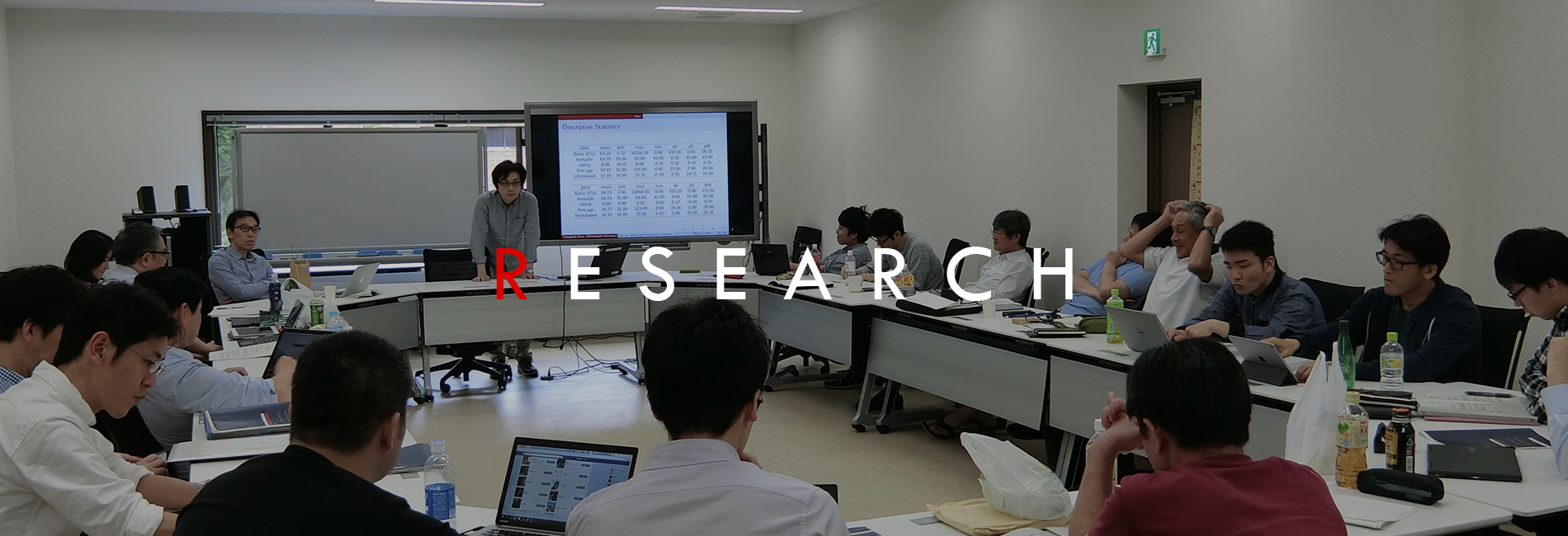“To become a world-class center of excellence for research on the social processes of innovation.”
The Institute of Innovation Research was established at Hitotsubashi University in April 1997 to achieve this objective.
The forerunner of the Hitotsubashi University Institute of Innovation Research was the Institute of Research in Business Efficiency at Tokyo University of Commerce, which was founded in 1944. In conjunction with the move to the new system university in May 1949, the institute changed its name to the Hitotsubashi University Institute of Business Research.
Over the subsequent period spanning nearly 50 years, the Institute of Business Research engaged not only in academic research but also carried out numerous theoretical and empirical studies aimed at making a contribution to practical business activities. One of the first institutions in the world to focus on case studies, the institute fulfilled a social role as a link between theory and practice over many years, perhaps best exemplified by its publication of the Hitotsubashi Business Review, which put out its first edition in 1953 and is still being published today.
With the reorganization of the Institute of Business Research in April 1997, the Institute of Innovation Research was launched to continue following this philosophy and role and address the strong needs of societies that demand innovation.
Innovation differs from mere invention and discovery. It is innovation that produces economic and social value. Consequently formal research into the social processes through which groundbreaking ideas create economic and social value was considered to be essential. For Japan in particular, struggling through the malaise of the post-bubble economic era, innovation research was a pressing issue. Moreover, for a country like Japan that lacks the natural resources to support its large population, striving to be a country founded on intellectual capital where innovation plays a central role could even be said to be an historic necessity.
Today, the circumstances that spur Japan to seek innovation remain unaltered. We believe our research at the IIR offers a critical opportunity for guiding Japanese enterprises and markets, which are still enveloped in a sense of stagnation, as well as Japan’s major political and economic frameworks, through the phase of creative destruction and into a new developmental stage.
